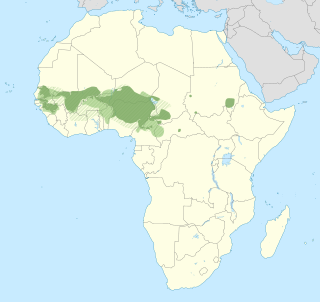
Back Fula Afrikaans اللغة الفولانية Arabic Idioma fula AST فولانی دیلی AZB Фула Bulgarian Fouleg Breton Ful Catalan زمانی فولا CKB Fulbština Czech Ffwlareg Welsh
| Fulani | |
|---|---|
| فولا (Arabic) Peul (French) | |
| Fulfulde 𞤊𞤵𞤤𞤬𞤵𞤤𞤣𞤫 ࢻُلْࢻُلْدٜ Pulaar 𞤆𞤵𞤤𞤢𞥄𞤪 ݒُلَارْ Pular 𞤆𞤵𞤤𞤢𞤪 بُۛلَر | |
| Native to | Western Africa |
| Region | Sahel |
| Ethnicity | Fula |
| speakers | L1: 37 million (2014–2021)[1] L2: 2.7 million (2019)[1] |
| Latin Adlam Arabic (Ajami) | |
| Official status | |
Official language in | Burkina Faso Mali |
Recognised minority language in | |
| Language codes | |
| ISO 639-1 | ff – Fulah |
| ISO 639-2 | ful – Fulah |
| ISO 639-3 | ful – inclusive code – FulahIndividual codes: fuc – Pulaar (Senegambia, Mauritania)fuf – Pular (Guinea, Sierra Leone)ffm – Maasina Fulfulde (Mali, Ghana)fue – Borgu Fulfulde (Benin, Togo)fuh – Western Niger Fulfulde (Burkina, Niger)fuq – Central–Eastern Niger Fulfulde (Niger)fuv – Nigerian Fulfulde (Nigeria)fub – Adamawa Fulfulde (Cameroon, Chad, Nigeria)fui – Bagirmi Fulfulde (CAR) |
| Glottolog | fula1264 |
 Core and peripheral Fula-speaking regions. Note that most of these areas, with the exceptions of Senegal and Guinea, are not primarily Fula-speaking, as this map only shows the absolute numbers of speakers. | |
Fula (/ˈfuːlə/ FOO-lə),[2] also known as Fulani (/fʊˈlɑːniː/ fuul-AH-nee)[2] or Fulah[3][4] (Fulfulde, Pulaar, Pular; Adlam: 𞤊𞤵𞤤𞤬𞤵𞤤𞤣𞤫, 𞤆𞤵𞤤𞤢𞥄𞤪, 𞤆𞤵𞤤𞤢𞤪; Ajami: ࢻُلْࢻُلْدٜ, ݒُلَارْ, بُۛلَر), is a Senegambian language spoken by around 36.8 million people as a set of various dialects in a continuum that stretches across some 18 countries in West and Central Africa. Along with other related languages such as Serer and Wolof, it belongs to the Atlantic geographic group within Niger–Congo, and more specifically to the Senegambian branch. Unlike most Niger-Congo languages, Fula does not have tones.
It is spoken as a first language by the Fula people ("Fulani", Fula: Fulɓe) from the Senegambia region and Guinea to Cameroon, Nigeria, and Sudan and by related groups such as the Toucouleur people in the Senegal River Valley. It is also spoken as a second language by various peoples in the region, such as the Kirdi of northern Cameroon and northeastern Nigeria.
- ^ a b Fulani at Ethnologue (26th ed., 2023)

Pulaar (Senegambia, Mauritania) at Ethnologue (26th ed., 2023)
Pular (Guinea, Sierra Leone) at Ethnologue (26th ed., 2023)
Maasina Fulfulde (Mali, Ghana) at Ethnologue (26th ed., 2023)
Borgu Fulfulde (Benin, Togo) at Ethnologue (26th ed., 2023)
Western Niger Fulfulde (Burkina, Niger) at Ethnologue (26th ed., 2023)
Central–Eastern Niger Fulfulde (Niger) at Ethnologue (26th ed., 2023)
(Additional references under 'Language codes' in the information box) - ^ a b Laurie Bauer, 2007, The Linguistics Student's Handbook, Edinburgh
- ^ "Documentation for ISO 639 identifier: ful". ISO 639-2 Registration Authority - Library of Congress. Retrieved 2017-07-04.
Name: Fulah
- ^ "Documentation for ISO 639 identifier: ful". ISO 639-3 Registration Authority - SIL International. Retrieved 2017-07-04.
Name: Fulah
© MMXXIII Rich X Search. We shall prevail. All rights reserved. Rich X Search